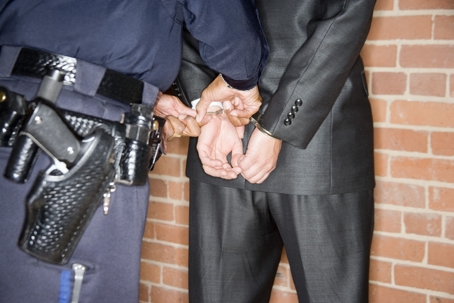I will share a story with you from my teenage years. My brother-in-law, about 8 years my senior, has been a police officer for a small town in central Ohio for almost 20 years now. When I was a young teenager, I asked him if I could borrow "just one" of his uniforms to dress up as a police officer for Halloween. I was a bit mischievous as a teenager—like many other young men at my age, however I never had any nefarious or bad intentions with a police uniform. I just wanted to wear a "real" police uniform—what's better than having the real thing on Halloween—my friends will think I'm the man!!!
To my dismay, my brother-in-law looked at me and said, "Buddy I cannot do that for you, I'm sorry." Immediately wanting a valid explanation, I asked him why (seems like a typical question a one-day wanna-be lawyer would ask). He let me know that it was against the law to impersonate a police officer, even if it was in good fun. I didn't quite understand it then, however, there are many reasons that he told me why impersonating an officer might not be a good idea for the public. Turns out, he gave me a laundry list of "valid" reasons—he was right, I was wrong. I think I ended up going as an Alcatraz prisoner that year. FYI—I checked the law and it is NOT illegal.
Why is it wrong?
It is mostly wrong because of public policy implications. Think about it, what if someone on Halloween night really needed police help, and they ran up to me pleading for my professional assistance. I could help them as a layperson, however I could not just radio the authorities or call for backup. By impersonating an officer, he or she would essentially be a walking, talking fraudulent advertisement. Also, a profession such as law enforcement needs to be taken seriously and with high respect. If the general public sees a young kid in a real outfit—this might take away from the sanctity of the profession. Especially in this day and age, we have seen some citizens show low respect and trust in law enforcement. We need to keep the trust and respect for these individuals—my youthful ideas, although wholesome and a little boastful would have undermined the profession.
Penalties
Merely impersonating (wearing the uniform and garb) an officer is a fourth-degree misdemeanor. If the person impersonating the officer tries to arrest or detain someone, or intends to commit an offense as the impersonation, then the crime is a first-degree misdemeanor. If the offense previously stated is a felony—the crime is elevated to a fourth-degree felony. However, if the felony was accomplished or carried out with the intent, the crime is then elevated to a third-degree felony.
Why the huge discrepancy in penalties?
This is a perfect example of the law separating intent (mens rea) from the act (actus reas). While having good intentions and a bad act (or vise versa) might not require a severe penalty, possessing a bad intent that causes a bad act—this is why we see a typical low-level misdemeanor instantly become a mid-level felony.
For affordable and experienced representation, get in touch with our firm quickly. Developing the proper defense requires time and we're ready to get started with you. Contact us today.

